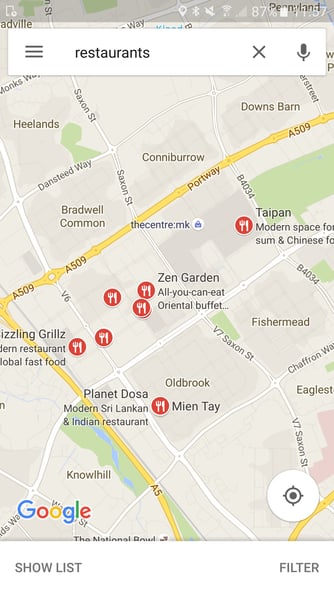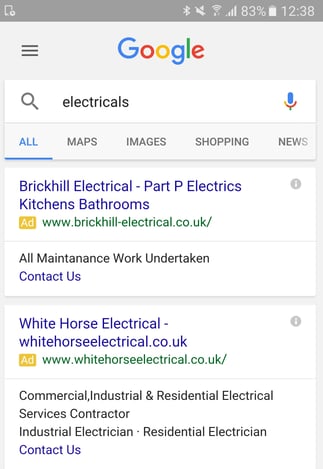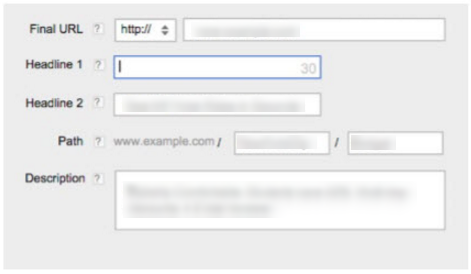Yesterday (24th May 2016), the great and good of search marketing gathered for Google’s Performance Summit, and there were some big announcements of changes coming to AdWords this year.
Google Maps to start showing local ads
Last month Google announced that Maps would become a part of their Search Network, suggesting we’d be seeing more ads on the platform very soon.
It’s unsurprising that Google would want to take advantage of Maps considering is has more than a billion users and is responsible for a third of all mobile searches - and yesterday’s announcement confirmed it.
New ads, brand logos and brand offers will appear on the surface of the Map - not just alongside it - and that will surely help advertisers stand out from the crowd of local competitors.

Advertisers will also be able to highlight in-store promotions, while users will be able to search local inventory.
The ad targeting for Google Maps ads will be slightly more complex than normal. They will be shown based on queries but also take into account various context signals such as personal browsing history, similar users, time of day, user interests and user behaviour.
Double headlines and more characters for mobile ads
At present ads on mobile are allowed a single 25 character headline, but this will soon be expanded to allow for two 30-character headlines. This will be most effective on mobile devices, with the new dual headline covering two lines instead of just one.
Google’s been testing this change for a while and found that click-through rates have increased by as much as 25 per cent. Great news if you’re an advertiser, not such great news if you’re currently ranking highly in the organic listings.
Advertisers will also have an increased description to play with - a single one of 80 characters replacing the existing dual 35 character descriptions - enlarging that ad listings still further.
You’ll see from the above screen grab that the Display URL field has also been removed. Instead, AdWords will automatically extract the domain from the URL, while advertisers will have the chance to add in one or two paths to enhance the display URL.
These changes will likely have the biggest impact on mobile, but they are also going to be made for desktop ads too.
Improved measurement of in-store conversions
Wouldn’t it be great if you could see which of your in-store customers had visited as a result of seeing your Google ads? It’d certainly help to identify a more accurate ROI.
Well it appears that we might soon be able to acquire this insight.
The clever part is that Google will simply look at phone location history to determine whether someone who searches for a relevant keyword and then clicked on your ad has subsequently visited your store.
At their Performance Summit yesterday Google cited the example of Nissan UK after it found that 6% of users who clicked on their ads went to their local dealership.
Responsive display ads
One of the more irritating parts of creating display ads is having to make separate versions for each format, such as skyscraper, leaderboard and square. Thankfully, this is being tackled by another AdWords update - Responsive Display Ads.
With the new functionality, simply provide Google with a URL, headline, descriptions and image, and Google will create a responsive display ad for you.
This change is expected later this year.
Changes to device bidding
Currently, advertisers are required to set a base desktop bid, with mobile bids being a multiple of that base bid. For tablets, we’re stuck with that desktop bid.
This is set to change with updates to AdWords’ bidding process.
Soon, you’ll be able to set mobile, tablet and desktop bids independently of each other, offering the flexibility to allow you to take advantage of user behaviour on these different devices.
These announcements demonstrate two things. Firstly, a continuation of Google’s ‘mobile-first’ viewpoint that has been evident over the last few years; and secondly, that ads will be given increasing prominence in search results - at the expense of the organic listings.
As more and more traffic is driven towards the paid listings it is more important than ever to ensure our PPC advertising efforts are as well optimised as possible.
Stay Updated with Our Latest Insights
Get expert HubSpot tips and integration strategies delivered to your inbox.


.jpg)
